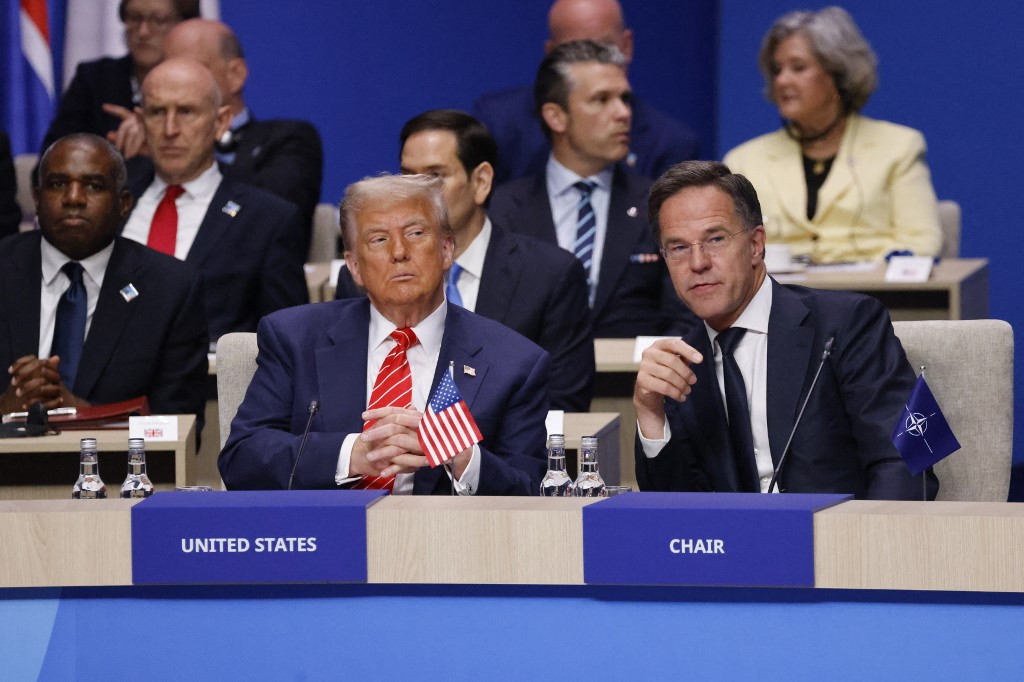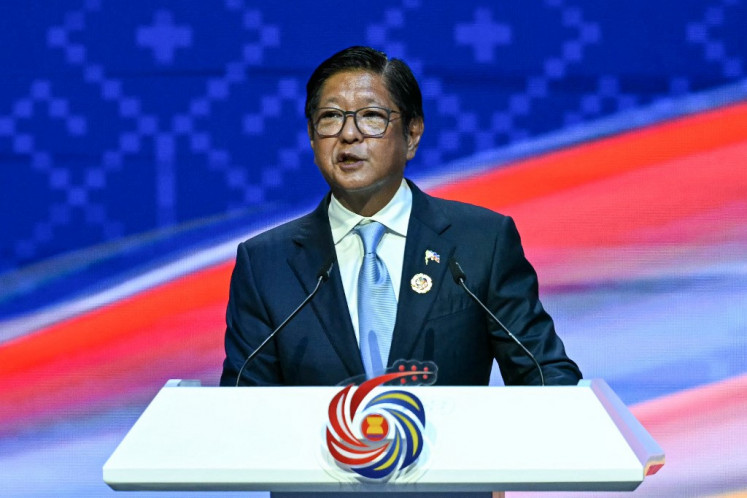Popular Reads
Top Results
Can't find what you're looking for?
View all search resultsPopular Reads
Top Results
Can't find what you're looking for?
View all search resultsIshiba’s NATO absence a strategic misstep
Shigeru Ishiba’s decision not to personally attend represents a missed opportunity to strengthen ties with Europe at a time when Japan's strategic thinking is increasingly turning toward this region.
Change text size
Gift Premium Articles
to Anyone
S
ince a Japanese prime minister first attended a NATO summit in 2022, Japan has sent its highest-level representative to the event for three consecutive years.
Russia's full-scale invasion of Ukraine in February 2022 was a key catalyst for Tokyo's decision to attend that year, and the 2025 summit in The Hague would have marked the fourth consecutive appearance by a Japanese leader.
Prime Minister Shigeru Ishiba’s decision not to personally attend represents a missed opportunity to strengthen ties with Europe at a time when Japan's strategic thinking is increasingly turning toward this region.
Ishiba's glaring absence comes at a sensitive moment for Japan, as it confronts growing Chinese assertiveness while managing a more unpredictable United States.
While previous US administrations invested significant diplomatic and political capital in promoting cross-regional cooperation between NATO and its Indo-Pacific Four (IP4) partners, the current Trump administration has shown far less interest in advancing such efforts.
Trump's emphasis on narrow, transactional negotiations over defense spending within allies' respective regions has broken the momentum of cross-regional cooperation built over the past three years. In this context, Ishiba's decision to skip the summit reflects Tokyo's desire to avoid confrontation with Trump over contentious issues such as defense expenditures and trade.
These topics remain especially sensitive given the Japanese government's fragile approval ratings and the upcoming upper house elections in July.
As geopolitical competition intensifies, defense technology innovation and a robust defense industrial base have emerged as indispensable strategic assets. Yet, this is an area where Japan has traditionally lagged, due to the longstanding constraints on its defense industry and heavy reliance on US procurements.
The tide, however, appears to be shifting. In its 2022 strategic documents, Tokyo identified reinforcing its defense production and technology base as a national priority.
Since 2023, Japan has eased its export controls, allowing the licensed export of domestically produced defense equipment, including lethal systems, to boost competitiveness through economies of scale and access to overseas markets.
As Japan carefully balances its security and economic relations with its ally, concerns over US unpredictability have indeed elevated the importance of European partners for Tokyo's foreign and defense policy.
Europe now features prominently in Japanese strategic thinking, with Tokyo expanding security cooperation with several European states at the bilateral and multilateral levels, through mechanisms like NATO IP4 and the Global Combat Air Programme (GCAP).
GCAP, a new Japan-Italy-UK partnership for the development of a sixth-generation fighter jet, has been described as a "new alliance" since the multilayered cooperation between the three governments, militaries and industries will inevitably strengthen security ties among them.
Japan's extensive and asymmetric dependence on US defense collaboration and procurement has long been a source of frustration for Japanese officials and defense companies.
According to a defense expert interviewed in July 2024, Tokyo maintains a "painful memory" of its co-development with the US on the F-2 fighter program in the 1980s, which continues to shape Japanese perceptions.
US restrictions on the sharing of confidential technical information, coupled with the inability to freely modify procured systems without US approval, have complicated both co-development programs like the F-2 and procurement of F-35s.
Beyond GCAP, Japan is partnering with the United Kingdom on Joint New Air-to-Air Missiles (JNAAM) and a universal radio frequency sensor technology (JAGUAR), while collaborating with France on mine countermeasures, and trilaterally with France and Germany on railgun technologies.
Moreover, in November 2024, Japan and the European Union issued the "Japan-EU Security and Defense Partnership," their first-ever document outlining concrete cooperation initiatives in maritime security, space, cybersecurity and hybrid threats.
While these initiatives do not indicate a pivot away from the US, they mark the growing significance of European partners for Japan.
As Washington increasingly treats arms sales and security guarantees as transactional tools for managing trade imbalances, Japan, like Europe, faces the challenge of balancing US demands while seeking diversification for its security partnerships.
Ishiba's absence from this year's NATO summit is therefore a missed opportunity for advancing ties with NATO partners at a critical moment. One of the objectives of the newly established Mission of Japan to NATO is to enhance European understanding of Japan and the Indo-Pacific.
Ishiba's decision not to attend following the cancellations by other IP4 leaders may show a lack of leadership in the region, but it also risks sending the signal to Europeans that the Indo-Pacific is, after all, not as important as when former prime minister Fumio Kishida used to repeat "Ukraine today may be East Asia tomorrow."
Ishiba, who replaced Kishida in October 2024, has yet to visit Europe, despite the fact that relations with European countries have taken on increasing importance in recent years.
His personal engagement with European leaders would have signaled Japan's commitment to deepening these strategic partnerships; a gesture increasingly valuable as both Japan and its European partners navigate the uncertainties of managing their respective alliances in the coming years.
---
Sayuri Romei is a senior fellow in the German Marshall Fund's Indo-Pacific program. Alice Dell'Era is an assistant professor at the Embry-Riddle Aeronautical University.











